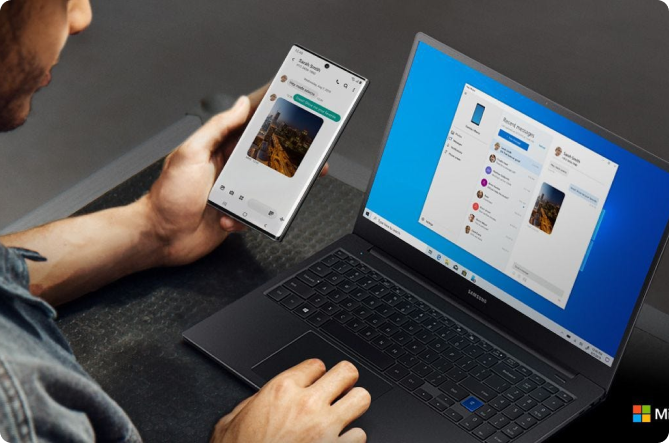Digital learning in schools
Providing a digital device to a learner will not result in improved educational outcomes if there is no theoretical understanding as to how the learners and teachers should use the technology. This course provides an overview of the knowledge, values and skills that are needed for a successful digital implementation. The course covers a range of topics from why teachers should embrace technology, through to how to choose the technology and then use it in powerful and pedagogically sound ways.

Sessions
-
Session 1
Why eLearning?
Learn about the importance of eLearning to prepare yourself, your learners and your school for the 21st Century.
R125
Required existing laptop/tablet skills:
Entry Level NovicePoints gained:
5 PD Points
Required prior knowledge:
None.
Session description:
After the session, you will:
• understand what eLearning is and why it is important for 21st century learners
• appreciate what learners in the 21st century are like and what their educational needs are
• recognise what teachers in the 21st century need to be like and what their learners’ educational needs are
• realise the need for theoretical underpinnings in eLearning
• understand and be able to apply three theories of eLearning: TPACK, SAMR and RAT
• understand and be able to implement blended learning. -
Session 2
Getting technical
Learn about different devices, their technical specifications, and the various operating systems available to you.
R125
Required existing laptop/tablet skills:
Entry Level StandardPoints gained:
5 PD Points
Required prior knowledge:
Session 1 of this course would be useful.
Session description:
After the session, you will:
• appreciate the various specifications of digital devices such as tablets and laptops
• understand the implications of digital device specifications for use in a classroom
• understand the different digital device operating systems
• know more about different types of software and apps for teaching and learning
• make informed decisions with respect to choosing a digital device for use in a classroom that will meet the individual context and needs of the learners as well as the teacher. -
Session 3
Managing and usaging of ICTs in schools
Learn about the management and administration of ICT in schools, and develop an ICT implementation plan.
R125
Required existing laptop/tablet skills:
Entry Level StandardPoints gained:
5 PD Points
Required prior knowledge:
Session 1 of this course would be useful.
Session description:
After the session, you will:
• understand what ICT is in a school environment
• understand what ICT management policies are and why we need them to be effective
• know the role stakeholders play in ICT management
• have insight into how to plan a policy for your school
• have a draft of your own ICT management policy
• have a draft of your own ICT implementation plan
• have a draft of your own Acceptable Use Policy. -
Session 4
Content and apps for teaching
Learn about the different types of content that you can use and the integrated use of apps in the classroom.
R125
Required existing laptop/tablet skills:
Entry Level StandardPoints gained:
5 PD Points
Required prior knowledge:
Session 1 of this course would be useful.
Session description:
After the session, you will:
• understand that a digital device is a tool and that content is required to make it useful
• appreciate different sources of content for digital devices
• appreciate the importance of eLearning theory (Revised Bloom’s Taxonomy, TPACK, SAMR) in teaching with technology
• be able to differentiate among the different types of eBooks
• be able to make an informed decision as to which eBook type best suits the participants’ individual context and needs
• appreciate the functions of eBook Reader Apps (Google Play Books and Snapplify)
• understand how to develop an eBook in PDF and ePUB formats
• have an appreciation of what needs to be considered when choosing an app for learners
• know about three note-taking apps (Google Keep, OneNote, Evernote)
• know about the Khan Academy and Khan Academy Kids apps
• know about the Explain Everything app
• understand the ChatGPT app and its use in the classroom. -
Session 5
Online assessment tools
Learn about assessment in the 21st Century, as well as how to make use of various online assessment tools.
R125
Required existing laptop/tablet skills:
Entry Level StandardPoints gained:
5 PD Points
Required prior knowledge:
Session 1 of this course would be useful.
Session description:
After the session, you will:
• appreciate the key principles of assessment
• understand the difference between formative and summative assessment
• understand the difference between paper-based assessment and online assessment
• know the features, benefits and challenges of online assessment
• know the characteristics of the Via Afrika Test-Urself app and the Kahoot! app
• know how to use Test-Urself and Kahoot! in the classroom
• know how to create a quiz in Google Forms and Microsoft Forms
• appreciate the difficulties in marking essays online and consider some solutions
• know about two online assessment solutions, QuickKey and ZipGrade. -
Session 6
Games and gamification in education
Learn how to effectively use games in education, and discover useful resources and ideas for the classroom.
R125
Required existing laptop/tablet skills:
Entry Level StandardPoints gained:
5 PD Points
Required prior knowledge:
Session 1 of this course would be useful.
Session description:
After the session, you will:
• understand how and why to use games and gamification in education
• define what gamification is and understand why it is so engaging for learners
• appreciate gamification’s uses in real life and learning
• know how to use scavenger hunts and treasure hunts in the classroom
• know how to create and use QR codes to enhance learning
• have a list of steps to follow to design a game
• have a list of steps to follow to design a gamification experience
• understand the main elements of a game – goal, quest, mission, challenge, task, points, leaderboard, levels, rewards
• know how to use ready-made online gamification solutions.
R750
5% off when buying the whole courseAdded to cart!
has been added to your cart.





